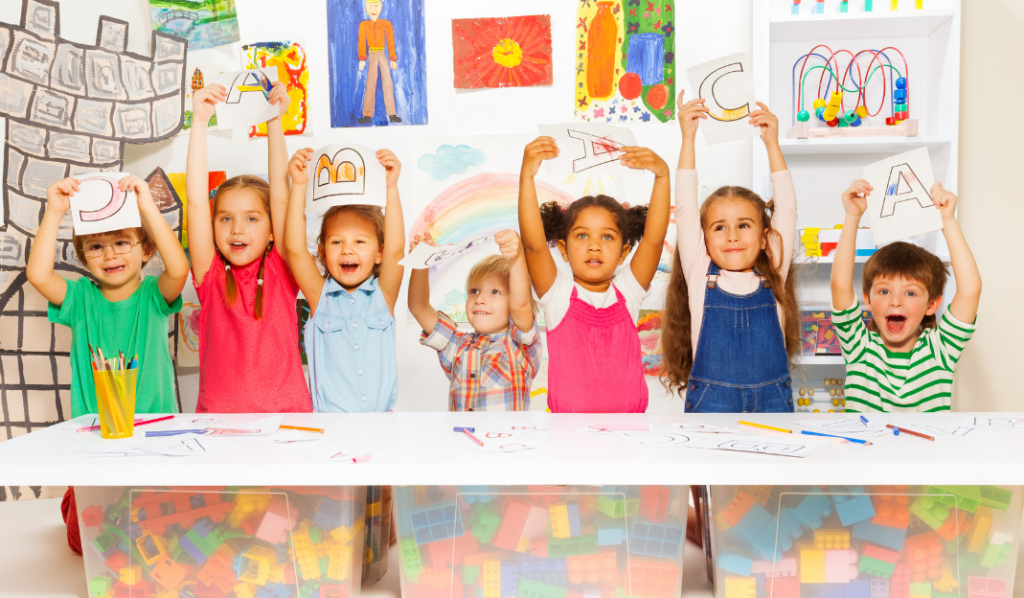
Language Development Stages for 3 to 4-Year-Olds
Between the ages of 3 and 4, children experience exciting language development. This includes more nuanced conversations, a basic grasp of grammar, and an expanding vocabulary.
Questioning becomes commonplace as children seek to understand more about the world around them. Children's language skills will always develop at different paces, but this blog outlines the standard language development stages for 3 to 4-year-olds. It also provides some useful tips on how to support your child's development.

Key language development stages
Vocabulary
At this stage, your child's vocabulary will progress extensively. They will begin to use connecting words, number words, names for family relations, words to describe emotions, color words, and terms to describe a group of things (i.e. 'animals' or 'numbers'). They will also begin to show an understanding of time through using words like 'today/tomorrow/yesterday'.
Understanding
At this language development stage, understanding begins to take precedence over acceptance. If a child doesn't understand something, they will often ask for clarification or an explanation. Directions that involve more than two steps (i.e. 'brush your teeth, put on your pajamas, and get into bed') will be understood, providing the content is familiar to them.
Listening
You may notice your child's listening capabilities changing, with them able to listen to longer stories without losing attention. They may even start to ask questions about the stories.
Grammar
Connecting words such as 'because' or 'that' will begin to enter your child's vocabulary, allowing them to form longer and more complex sentences (e.g. 'I like that because…'). An understanding of word order in questions and negatives will appear (e.g. 'Am I coming?'). They will also start to show an understanding of past events and an ability to describe things that have already happened, even if their phrasing is still basic (e.g. 'We went beach'). Tenses will likely remain muddled (i.e. using 'swimmed' instead of 'swam').
Jokes
Your child may start to laugh at basic jokes, even without entirely understanding them!
Conversation
At this stage, your child's ability to tell a story will become more coherent, with them understanding how to use a beginning and end with some sort of consistent theme throughout. 3 to 4-year-olds develop 'why' and 'how' questions as a means to learn more about their world. 'Guess what?' begins to appear in a child's vocabulary around age 4 as they learn how to start a story with a question. At this language development, stage children can be understood by most adults, although their pronunciation of words including 'l', 'th' and 'r' can require more work.
Communication in play
This language development stage sees children begin basic negotiations with other children during play, such as establishing whose turn is first. Age four will see children use language in role-play, either to assume a character (e.g. 'mummy') or to create imaginary characters. You may notice them also beginning to create rules for games.
How to help language development
There are many ways you can support your child's language development.
Talk about the day: Setting aside time to talk to your child about their day will encourage memory skills, an understanding of the past tense, and an ability to talk about things they cannot currently see.
Tools to sustain interest: Pictures, gestures, acting, facial expressions, and puppets are all helpful to keep a child engaged as their language develops.
Play with them: Join in with your child's game but encourage them to take the lead and set the rules. Rather than asking questions, talk about what they are doing to support their language skills. Encourage games that involve opposites such as 'big and little'.
Experiment with role reversal: Placing children into an unfamiliar position (such as playing 'mummy' or 'daddy') can teach them about new situations.
It is important to remember that each child develops at a different rate; this blog gives a broad outline of what to expect. If you have any concerns regarding your child's development, contact a doctor or health visitor for expert advice.
The language development stages of 3 to 4-year-olds are complex and varied. Have you noticed any different changes in your child's language development? Let us know by leaving a comment below.


Submit your comment